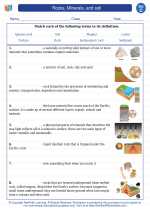Combustion Reactions
Combustion is a chemical reaction in which a substance reacts rapidly with oxygen and releases heat and light. The most common example of a combustion reaction is when a fuel, such as wood, gasoline, or natural gas, reacts with oxygen in the air to produce carbon dioxide and water vapor. This type of combustion is known as a complete combustion reaction.
The general chemical equation for a combustion reaction is:
fuel + oxygen → carbon dioxide + water + heat + light
For example, the combustion of methane (natural gas) can be represented by the following chemical equation:
CH4 + 2O2 → CO2 + 2H2O + heat + light
Study Guide
- Definition: What is a combustion reaction?
- Examples: Provide examples of substances that undergo combustion reactions.
- Chemical Equation: Write the general chemical equation for a combustion reaction.
- Reactants and Products: Identify the reactants and products in a combustion reaction.
- Energy Release: Explain the energy release in a combustion reaction.
- Importance: Discuss the importance of combustion reactions in daily life and industrial processes.
Studying combustion reactions can help you understand the fundamental principles of chemical reactions and their impact on the world around us. It is also crucial for understanding the concept of energy release and the environmental implications of combustion processes.
.◂Science Worksheets and Study Guides Third Grade. Rocks, Minerals, and soil

 Activity Lesson
Activity Lesson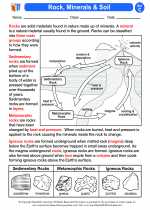
 Worksheet/Answer key
Worksheet/Answer key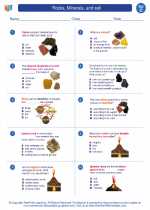
 Worksheet/Answer key
Worksheet/Answer key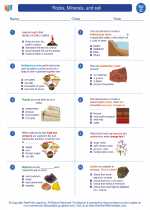
 Worksheet/Answer key
Worksheet/Answer key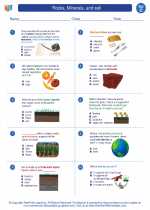
 Worksheet/Answer key
Worksheet/Answer key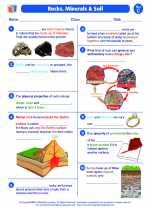
 Vocabulary/Answer key
Vocabulary/Answer key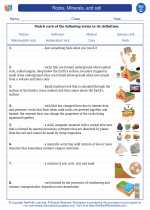
 Vocabulary/Answer key
Vocabulary/Answer key